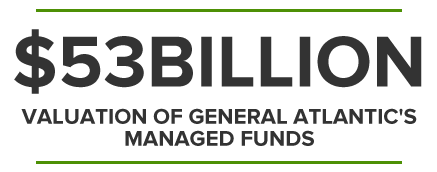
Tuesday, August 03, 2021
Tapping into the ALPS Disruptive Technologies ETF’s megatrends
تم إعداد هذا المنشور من قبل سنشري للاستشارات


The ALPS Disruptive Technologies ETF [DTEC] gained 44.1% in 2020 but has since lost its momentum so far this year – the fund is down 7.1% in the year-to-date as of 30 July.
Last year’s rally was driven by several tailwinds, including the need for medical technology innovation to fight the coronavirus pandemic, as well as growth in e-commerce, remote working, and digital media.
The ALPS Disruptive Technologies ETF had initially hit a 52-week high of $51.55 during intraday trading on 16 February but was weighed down in the months since by fears over higher inflation and interest rates knocking high-growth tech stocks.


Despite some concerns that the ending of lockdowns in the US, UK and Europe may herald a slowdown in demand for disruptive technology — such as those facilitating remote working — the fund has flourished again, closing 30 July at $49.93.
Tracking digital disruption
The ALPS Disruptive Technologies ETF, launched on 28 December 2017, tracks global companies that “enter traditional markets with new digital forms of production and distribution, and are likely to disrupt an existing market or value network”.
The ETF issuer adds: “Disruptive technologies are impacting our day to day lives dramatically and are forcing industries to change the way they do business. Those companies that are at the forefront of innovation, and leading the disruption of the status quo, may provide significant growth opportunities for investors.”


This covers sectors such as healthcare innovation, Internet of Things, clean energy, cloud computing, FinTech, mobile payments and 3D printing.
The ALPS Disruptive Technologies ETF has a year-to-date total daily return of 6.87% (as of 2 August), according to Yahoo Finance, and total assets of $234.8m.
As of 29 July, the fund’s top holding is Dexcom [DXCM], with a weighting of 1.23%, followed by ResMed [RMD] with 1.18%, Nemetschek [NEM.DE] with 1.16%, ServiceNow [NOW] with 1.15%, Dassault Systèmes [DSY] with 1.14% and Fortinet [FTNT] with 1.13%. Other holdings include mobile payments group Adyen [ADYEN.AS], at 1.11%.


Shares in ResMed have soared 34% in the past year (through 30 July). The maker of medical products for respiratory disorders has seen revenues grow 6% to $2.3bn in the nine months to March 2021, thanks to demand for its cloud-connected ventilators, which have allowed more remote monitoring of patients during the COVID-19 pandemic.
Shares in Nemetschek, which provides software solutions for the construction industry, have strengthened by 25.1% in the past year (through 30 July). It recently posted 21.5% currency-adjusted growth in second-quarter revenues to €165.9m, helped by its Allplan group, whose 3D modelling is proving more popular in lockdown with architects and engineers.
Shares in Adyen have surged 66% in the past year (through 30 July). Its 2020 revenues soared 28% to €684.2m, with earnings of €402.5m, up 27%, helped by the boom in e-commerce during the pandemic and its provision of payment services to firms such as Uber [UBER], Spotify [SPOT] and Netflix [NFLX].
Disruptive sectors forecasted growth
Growth is expected to keep surging in the ALPS Disruptive Technologies ETF’s key sectors. According to Allied Market Research, the global mobile payment market size is set to grow from $1.48tn in 2019 to $12.06tn by 2027.
The Global cloud computing market is tipped to rise at a CAGR of 18% from 2019 to 2026, according to Facts and Factors. Meanwhile, Precedence Research says the global digital health market will grow at a CAGR of 16.5% from 2020 to $551.1bn by 2027.
The rise in demand for cloud services as well as the challenge of increased data handling is also likely to lead to more need for cybersecurity options.
There are challenges out there, however, and demand for some disruptive technologies is already slowing as the pandemic fades. Sectors that have struggled in the last 18 months, such as aviation and physical retail, may also see tech budgets stretched in the months and even years ahead.


But overall, the need for disruption to give businesses a technological and cybersecurity edge — as more people work from home, manufacturers look to 3D printing solutions as they near-shore or on-shore supply chains, retailers develop or expand e-commerce options, and healthcare utilises tech to fight new and existing diseases — looks set to keep growing.
“Whether it’s cloud computing, cybersecurity, healthcare innovation or online retail, an array of megatrends are changing how companies do businesses, how consumers shop, and how patients receive care,” Tom Lydon CEO of ETF Trends, wrote. “These trends were at play prior to the coronavirus pandemic, but the global health crisis only accelerated the timeline under which some new technologies and concepts are being adopted. The DTEC captures these megatrends.”
Source: This content has been produced by Opto trading intelligence for Century Financial and was originally published on cmcmarkets.com/en-gb/opto
Disclaimer: Past performance is not a reliable indicator of future results.
The material (whether or not it states any opinions) is for general information purposes only and does not take into account your personal circumstances or objectives. Nothing in this material is (or should be considered to be) financial, investment or other advice on which reliance should be placed. No opinion given in the material constitutes a recommendation by Century Financial or the author that any particular investment, security, transaction or investment strategy is suitable for any specific person.
Century Financial does not endorse or offer opinion on the trading strategies used by the author. Their trading strategies do not guarantee any return and Century Financial shall not be held responsible for any loss that you may incur, either directly or indirectly, arising from any investment based on any information contained herein.
















